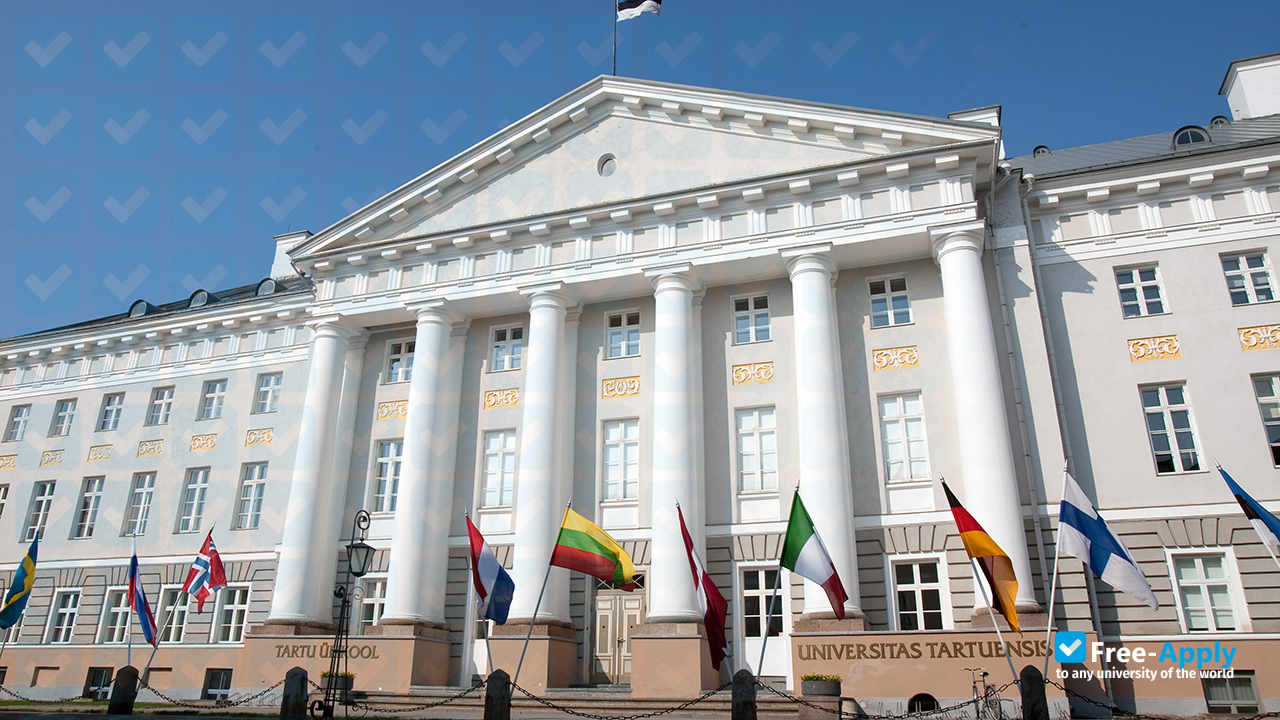The University of Tartu is a university in the city of Tartu in Estonia. It is the national university of Estonia, and the only classical university in the country, and also the biggest and most prestigious university in Estonia. It was founded under the name of Academia Gustaviana in 1632 by Baron Johan Skytte, the Governor- General (1629–1634) of Swedish Livonia, Ingria and Karelia, with the required ratification provided by his long-time friend and former student – from age 7 –, King Gustavus Adolphus, shortly before the king’s death on 6 November in the Battle of Lützen (1632), during the Thirty Years’ War (1618–1648).
Nearly 14,000 students are at the university, of whom over 1,300 are foreign students. The language of instruction in most curricula is Estonian, some more notable exceptions are taught in English, such as semiotics, applied measurement science, computer science, information technology law, and European Union – Russia studies.
The historical buildings of the university are included in the European Heritage Label list as “embodiment of the ideas of a university in the Age of Enlightenment“. The university is a member of the Coimbra Group and the Utrecht Network.
Studies
Nearly a quarter of the whole Estonian university student population studies at the University of Tartu.[16] While most of the curricula are taught in Estonian, a number of degree programmes have English as a medium of instruction.
35% of UT’s study courses are offered partly or fully online – as web-based courses in Moodle, video lectures, webinars, e-portfolios, massive open online courses (MOOCs).
56 bachelor’s and 72 master’s programmes are available, including 26 programmes in English.
Bachelor’s studies
The university offers 56 different curricula on the bachelor’s level, including the open university curricula. Three bachelor’s degree programmes out of 56 are fully taught in English:
- Business administration
- Medicine
- Science and technology
Master’s studies
University of Tartu has 72 study programmes on master’s level. These programmes include 24 international master’s programmes in English:
Humanities
- Philosophy
- Semiotics
- Sound and Visual Technology
- Folkloristics and heritage studies
- European Languages and Cultures
Social sciences
- Contemporary Asian and Middle Eastern Studies
- Educational technology
- European Union – Russia studies
- Democracy and governance
- Information technology law
- Innovation and technology management
- International law and human rights
- International relations and regional studies
- Quantitative economics
- Wellness and spa service design and management
Science and technology
- Actuarial and financial engineering
- Applied measurement science
- Bioengineering
- Computer science
- Excellence in analytical chemistry
- Geoinformatics for urbanised society
- Materials Science and Technology
- Robotics and computer engineering
- Software engineering
Doctoral studies
Around 120 doctoral degrees are defended annually, which make up more than half of the total number in Estonia. The language of instruction for most of the PhD programmes (35) is English. Four programmes at least partly have Estonian as a medium of instruction. These programmes are: Estonian and Finno-Ugric Linguistics, Law, History and Pharmacy.[41]
In addition, over 45,000 learners enrolled in lifelong learning courses each year.
